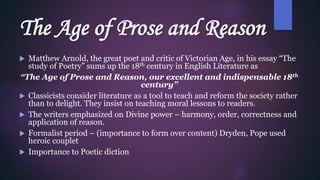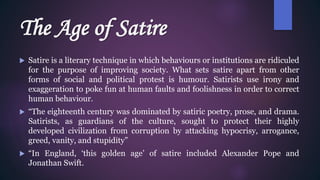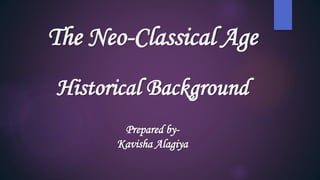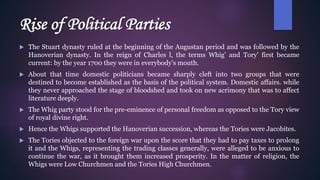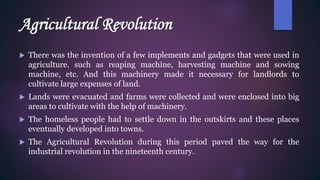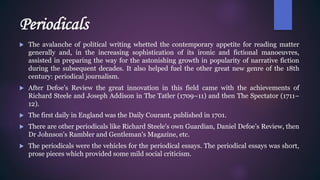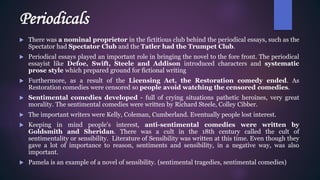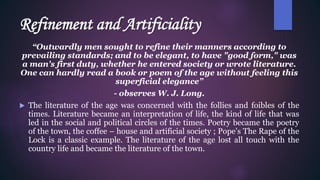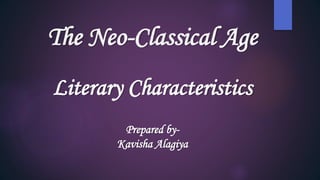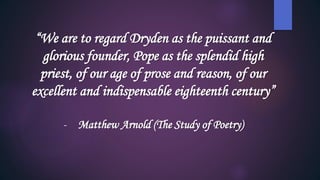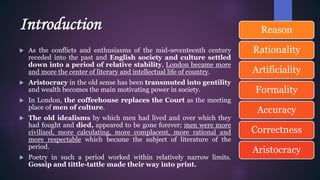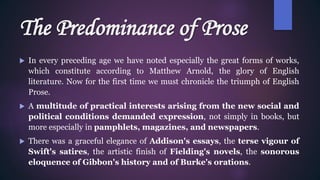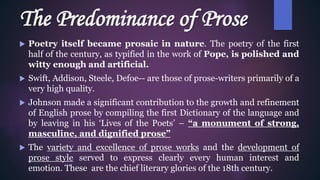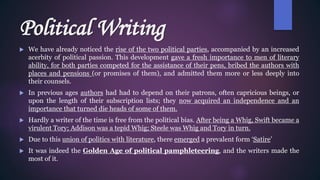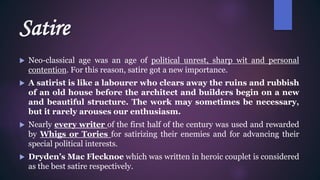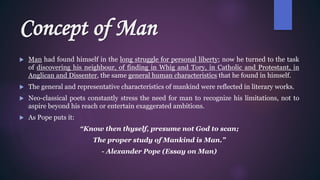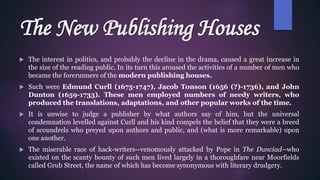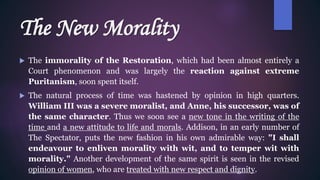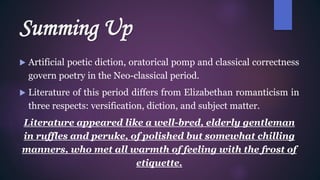The Neo-Classical Age is divided into three periods: the Restoration, the Augustan, and the Age of Johnson, characterized by a revival of classical values in literature and a focus on reason, order, and human nature. This era saw a rise in satire as a means of social and political critique, alongside significant developments in prose and periodical journalism that shaped modern literature. Key figures included Alexander Pope and Jonathan Swift, whose works reflected the political and philosophical shifts of the time, paving the way for the enlightenment and the eventual romantic movement.
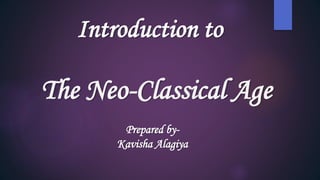
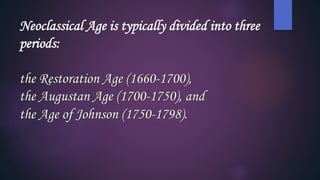
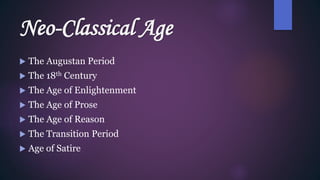
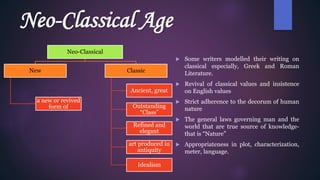
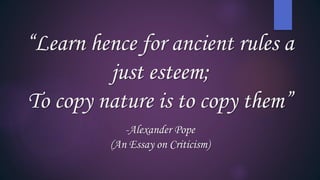
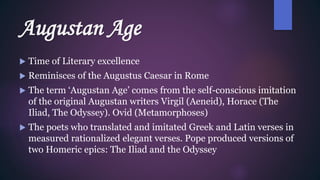
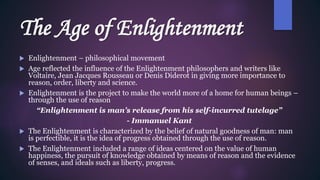
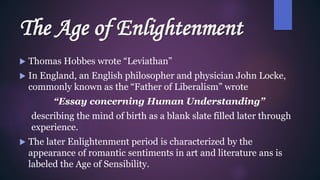
![The Age of Enlightenment
The enlightenment writers denounced the supernatural ideas,
they were progressive from the writers of previous periods.
Exploration, individualism, scientific endeavor were forced which
turned into the development in industries, witnessing the
emergence of modern world.
Skepticism in Church or King led to the questioning of all
traditional and rooted views and beliefs.
Scientific revolution took place (Sir Isaac Newton, Kepler,
Galileo) [from geocentric theory to heliocentric theory]](https://image.slidesharecdn.com/theneo-classicalage-220719100110-83f32a2c/85/The-Neo-Classical-Age-pptx-9-320.jpg)
